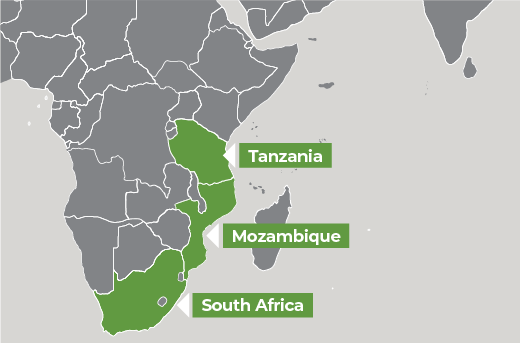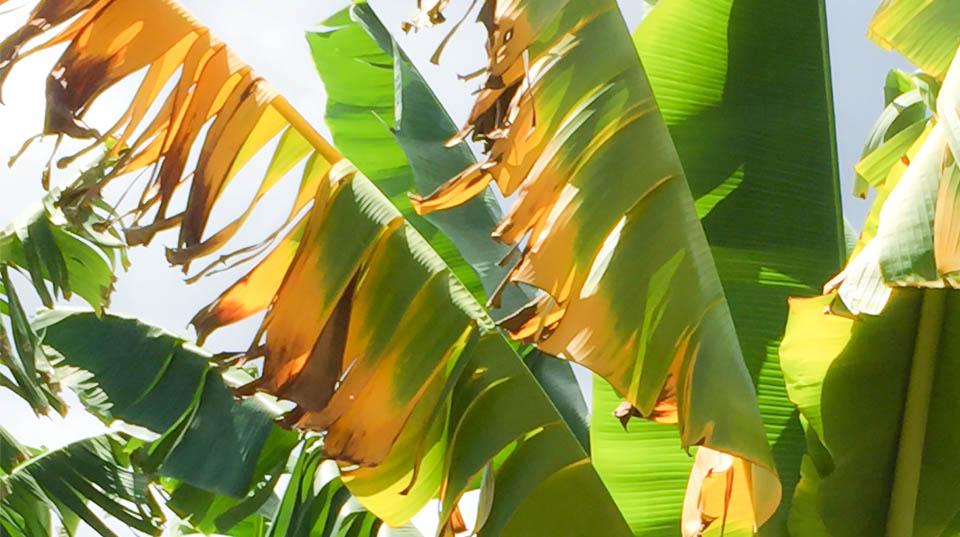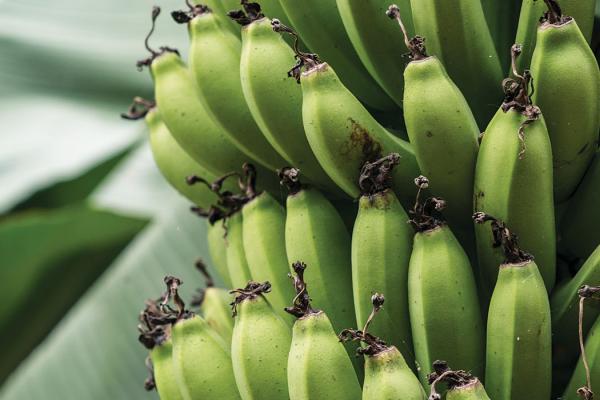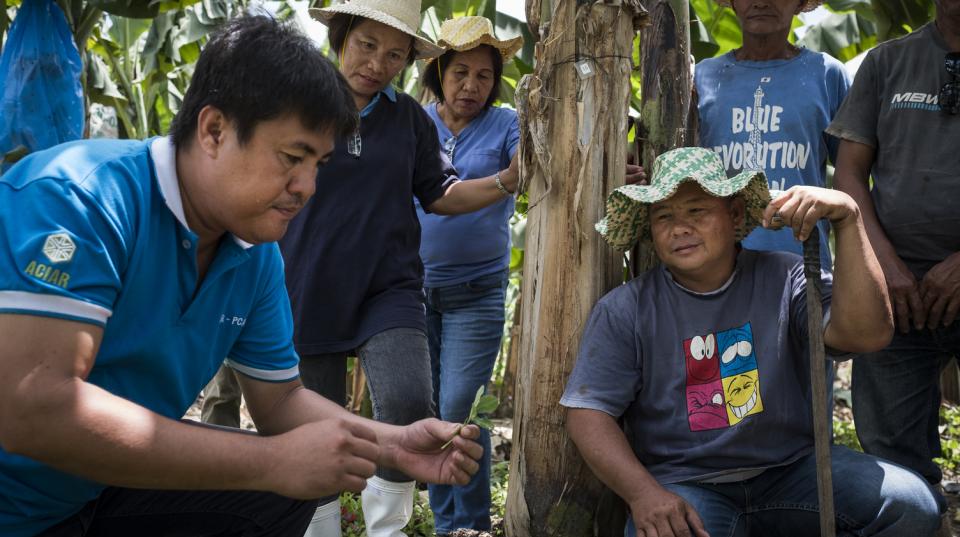Overview
This project aims to understand the vulnerabilities of banana farming systems in Mozambique and Tanzania, including the cultivars grown and production practices, and to work with country partners and landholders to identify biosecurity measures to reduce risks, and mitigate the potential damage caused by Fusarium wilt tropical race 4 (TR4) in farmer fields.
Fusarium wilt TR4 is one of the major threats to banana production in Africa, and scientific achievements from this project will contribute to the body of knowledge and practice to manage this disease.
Project outcomes
- Identifying the Fusarium wilt TR4 resistance for popular banana varieties grown in Mozambique and Tanzania. Screening of many of these varieties has not been previously undertaken and will be a major outcome of the project. Not only will this information underpin the risk assessment for smallholder farmers in ESA but it will be valuable for Australia as the diversity and nature of the banana varieties to be screened will be additional to the resistance screening currently or previously undertaken in Australia.
- Identifying potential alternative management strategies and biosecurity practices commensurate with local conditions and constraints. Most existing resources that can be accessed have been developed for Cavendish monoculture plantations and do not necessarily reflect the inherent risks in smallholder African production.
- Increasing the capacity of project team staff and organisations in different aspects of technical and process knowledge associated with extension, communication and biosecurity activities and Fusarium wilt TR4 research.
- Enabling innovation through application of a farming systems improvement model to develop improved biosecurity knowledge and practices that could be used in future programs aiming to increase practice change.






